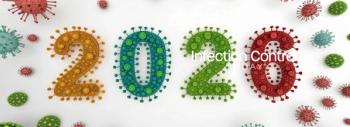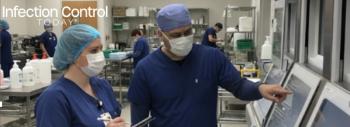
AAMI ST108: Updating Water Quality for Reprocessing Medical Devices
Infection Control Today finds out what the update to AAMI TIR34, “Water for the reprocessing of medical devices,” says.
Proper water quality is critical for successful sterile processing. It affects cleaning effectiveness and prevents staining or corrosion of instruments. It also impacts manual and automated cleaning and the use of steam.
The AAMI TIR34 offers helpful advice on maintaining sterile processing in medical instrumentation. This guidance explains the meaning of water quality, its significance in sterile processing, the adverse outcomes of poor water quality, and how the guidelines can ensure better water quality. An updated version of this guidance, AAMI ST108, is expected to be finalized by the end of summer 2023.
A poster titled "Water Quality, AAMI ST108, and You" was presented at the Healthcare Sterile Processing Association Annual Conference held in Nashville, Tennessee, from May 6-10.
This poster is about the draft update to the AAMI TIR34, “Water for the reprocessing of medical devices: How to ensure adequate water quality for your sterile processing department.” The upcoming update will provide more detailed instructions on selecting appropriate water for specific purposes and guidance on when and what to test. It will also address questions regarding acceptable water types and how to respond when issues arise. Jonathan A. Wilder of Quality Processing Resource Group, LLC, created the poster.
This update to the water quality standard in sterile processing will change the profession. “It is my belief that ST108, Water Quality for Water Processing for Instruments standard, is one of the most important documents that has come out of AAMI since ST79,” Wilder told Infection Control Today in an interview.
This update “defines the water types you should use for processing, utility water, and critical water,” according to the poster. “It helps ensure that your water supplies help you process instruments, not make you wish you hadn’t.”
To process water successfully, it is essential to ensure it does not contain more impurities than permitted. Water quality is measured based on the impurities present, and facilities must be prepared to handle seasonal and unexpected variations in supply. The sterile processing department must also be equipped to handle any possible contingencies.
This update provides information about the individuals responsible for maintaining water quality and the consequences of poor water quality. It also outlines the different categories of water that can be used for processing, including washer disinfector, manual, and AER, and when to use them.
Additionally, the update covers how to ensure that the facility's water system is functioning correctly and how to improve the quality of the water supply.
Newsletter
Stay prepared and protected with Infection Control Today's newsletter, delivering essential updates, best practices, and expert insights for infection preventionists.




